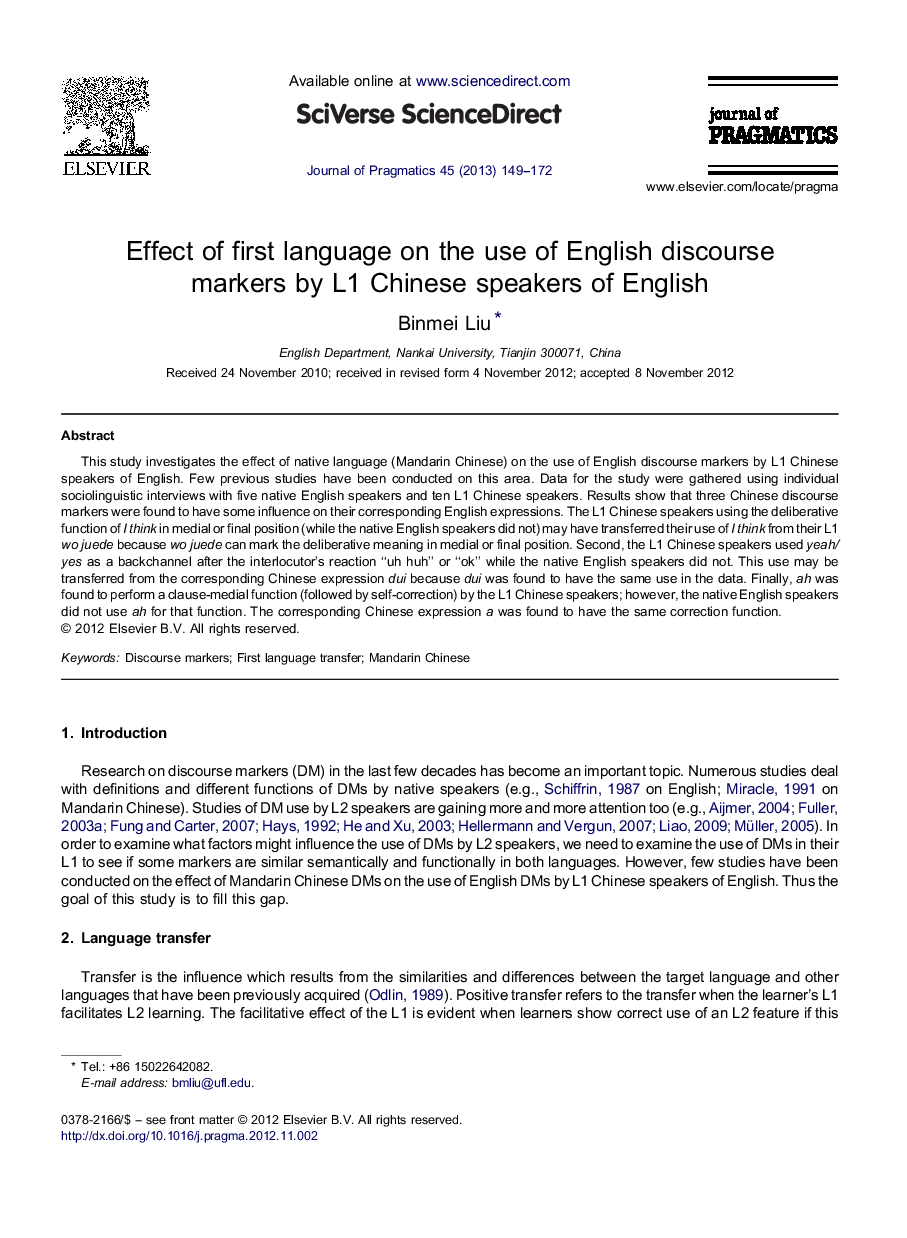| Article ID | Journal | Published Year | Pages | File Type |
|---|---|---|---|---|
| 932966 | Journal of Pragmatics | 2013 | 24 Pages |
This study investigates the effect of native language (Mandarin Chinese) on the use of English discourse markers by L1 Chinese speakers of English. Few previous studies have been conducted on this area. Data for the study were gathered using individual sociolinguistic interviews with five native English speakers and ten L1 Chinese speakers. Results show that three Chinese discourse markers were found to have some influence on their corresponding English expressions. The L1 Chinese speakers using the deliberative function of I think in medial or final position (while the native English speakers did not) may have transferred their use of I think from their L1 wo juede because wo juede can mark the deliberative meaning in medial or final position. Second, the L1 Chinese speakers used yeah/yes as a backchannel after the interlocutor's reaction “uh huh” or “ok” while the native English speakers did not. This use may be transferred from the corresponding Chinese expression dui because dui was found to have the same use in the data. Finally, ah was found to perform a clause-medial function (followed by self-correction) by the L1 Chinese speakers; however, the native English speakers did not use ah for that function. The corresponding Chinese expression a was found to have the same correction function.
► Deliberative function of I think in medial or final position may have transferred from Chinese marker wo juede. ► yeah/yes as a backchannel after the interlocutor's reaction may be transferred from Chinese marker dui. ► ah to perform a clause-medial function (followed by a self-correction) may be transferred from Chinese marker a.
